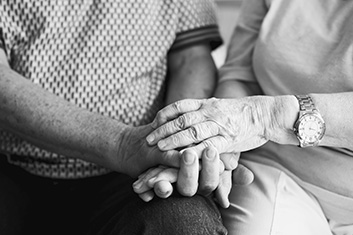News & Updates
Ageism 101
Ageism is an ongoing social problem that older Americans face in the aging process. Ageism, or myths about aging, creates barriers for older adults that are trying to age with dignity. As Americans live longer and healthier lives, ensuring equal access to resources that support healthy aging is important.
News & Updates
Ageism 101
Ageism is an ongoing social problem that older Americans face in the aging process. Ageism, or myths about aging, creates barriers for older adults that are trying to age with dignity. As Americans live longer and healthier lives, ensuring equal access to resources that support healthy aging is important.
Blog Topics
Diabetes Across the Lifespan
Hispanic Americans include a diverse group of cultures, each with their traditions and dietary lifestyles, making them more prone to Diabetes. Diabetes is most prevalent among the Latino/Hispanic communities due to poor general health. Poor general health can be associated with the individual's cultural values, level of education, social support systems, and sedentary behaviors. “Over their lifetime, U.S. adults have a 40 percent chance of developing type 2 diabetes,” the Centers for Disease Control and Prevention (CDC) states. “But if you’re a Hispanic/Latino American adult, your chance is more than 50 percent, and you’re likely to develop it at a younger age.”
Providing Support on Issues Affecting CHWs and the Hispanic and Latino Community During the Pandemic
For over 20 years, MHP Salud has collaborated with national health organizations and associations across the country to develop resources and tools that provide support for CHW programs at federally qualified health centers, healthcare organizations, and community-based organizations. Continuing this tradition in 2020 would seem to be challenging as safety measures put in place for the COVID-19 pandemic put restraints on the way organizations can collaborate. This wasn’t the case for MHP Salud’s Management Based Objective programs which managed to provide a unique virtual learning opportunity covering current topics affecting CHWs and the Hispanic and Latino community.
Community Health Workers Bring Value to Clinical Teams
The idea of Community Health Workers as partners within clinical care teams has been gaining attention because of their effectiveness at reaching diverse populations in underserved communities to promote health initiatives. CHWs are by design, perfectly situated to perform health activities in hard-to-reach areas because they speak the language and come from the communities they serve.
Diabetes Across the Lifespan
Hispanic Americans include a diverse group of cultures, each with their traditions and dietary lifestyles, making them more prone to Diabetes. Diabetes is most prevalent among the Latino/Hispanic communities due to poor general health. Poor general health can be associated with the individual's cultural values, level of education, social support systems, and sedentary behaviors. “Over their lifetime, U.S. adults have a 40 percent chance of developing type 2 diabetes,” the Centers for Disease Control and Prevention (CDC) states. “But if you’re a Hispanic/Latino American adult, your chance is more than 50 percent, and you’re likely to develop it at a younger age.”
Providing Support on Issues Affecting CHWs and the Hispanic and Latino Community During the Pandemic
For over 20 years, MHP Salud has collaborated with national health organizations and associations across the country to develop resources and tools that provide support for CHW programs at federally qualified health centers, healthcare organizations, and community-based organizations. Continuing this tradition in 2020 would seem to be challenging as safety measures put in place for the COVID-19 pandemic put restraints on the way organizations can collaborate. This wasn’t the case for MHP Salud’s Management Based Objective programs which managed to provide a unique virtual learning opportunity covering current topics affecting CHWs and the Hispanic and Latino community.
Community Health Workers Bring Value to Clinical Teams
The idea of Community Health Workers as partners within clinical care teams has been gaining attention because of their effectiveness at reaching diverse populations in underserved communities to promote health initiatives. CHWs are by design, perfectly situated to perform health activities in hard-to-reach areas because they speak the language and come from the communities they serve.








